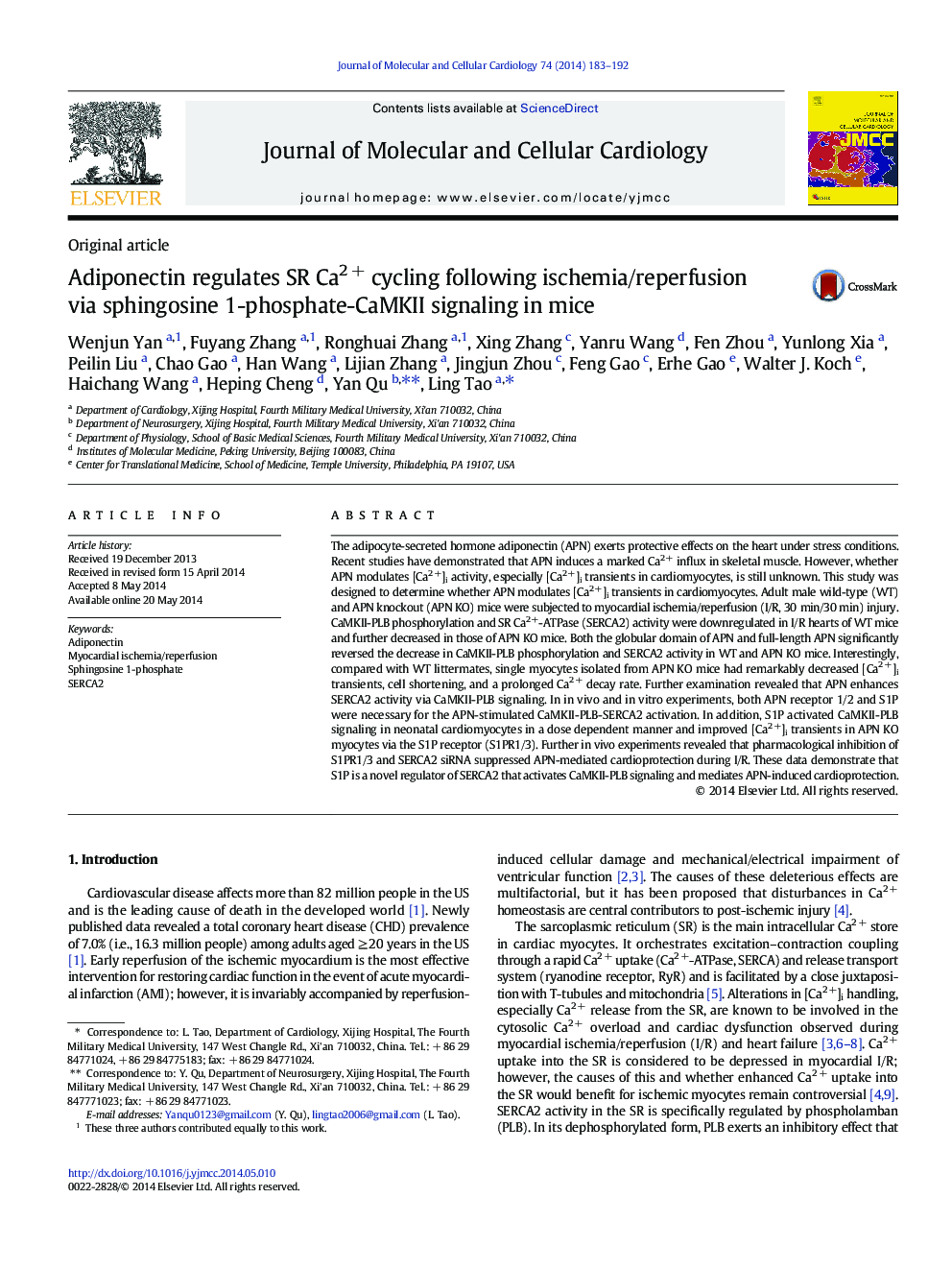| Article ID | Journal | Published Year | Pages | File Type |
|---|---|---|---|---|
| 8474745 | Journal of Molecular and Cellular Cardiology | 2014 | 10 Pages |
Abstract
The adipocyte-secreted hormone adiponectin (APN) exerts protective effects on the heart under stress conditions. Recent studies have demonstrated that APN induces a marked Ca2Â + influx in skeletal muscle. However, whether APN modulates [Ca2Â +]i activity, especially [Ca2Â +]i transients in cardiomyocytes, is still unknown. This study was designed to determine whether APN modulates [Ca2Â +]i transients in cardiomyocytes. Adult male wild-type (WT) and APN knockout (APN KO) mice were subjected to myocardial ischemia/reperfusion (I/R, 30Â min/30Â min) injury. CaMKII-PLB phosphorylation and SR Ca2Â +-ATPase (SERCA2) activity were downregulated in I/R hearts of WT mice and further decreased in those of APN KO mice. Both the globular domain of APN and full-length APN significantly reversed the decrease in CaMKII-PLB phosphorylation and SERCA2 activity in WT and APN KO mice. Interestingly, compared with WT littermates, single myocytes isolated from APN KO mice had remarkably decreased [Ca2Â +]i transients, cell shortening, and a prolonged Ca2Â + decay rate. Further examination revealed that APN enhances SERCA2 activity via CaMKII-PLB signaling. In in vivo and in vitro experiments, both APN receptor 1/2 and S1P were necessary for the APN-stimulated CaMKII-PLB-SERCA2 activation. In addition, S1P activated CaMKII-PLB signaling in neonatal cardiomyocytes in a dose dependent manner and improved [Ca2Â +]i transients in APN KO myocytes via the S1P receptor (S1PR1/3). Further in vivo experiments revealed that pharmacological inhibition of S1PR1/3 and SERCA2 siRNA suppressed APN-mediated cardioprotection during I/R. These data demonstrate that S1P is a novel regulator of SERCA2 that activates CaMKII-PLB signaling and mediates APN-induced cardioprotection.
Related Topics
Life Sciences
Biochemistry, Genetics and Molecular Biology
Cell Biology
Authors
Wenjun Yan, Fuyang Zhang, Ronghuai Zhang, Xing Zhang, Yanru Wang, Fen Zhou, Yunlong Xia, Peilin Liu, Chao Gao, Han Wang, Lijian Zhang, Jingjun Zhou, Feng Gao, Erhe Gao, Walter J. Koch, Haichang Wang, Heping Cheng, Yan Qu, Ling Tao,
